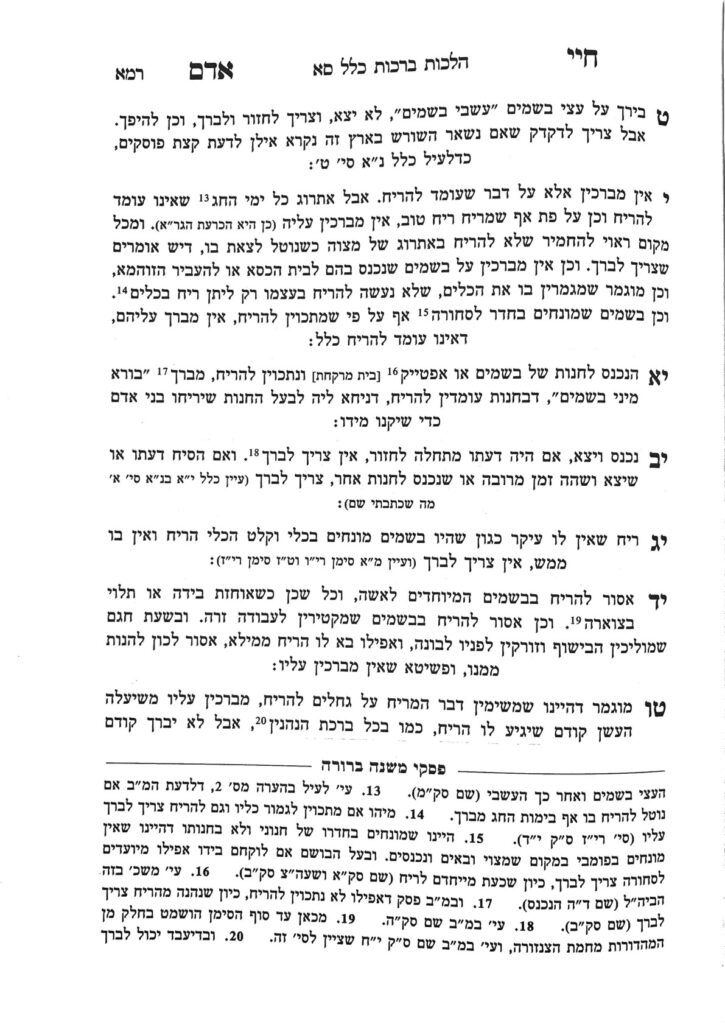We have finished siman 14, in which the Chayei Adam discussed besamim made from items from which it is assur to derive benefit (assur b’hanaah). The Chayei Adam gives the examples of besamim designated for a specific woman and besamim of avoda zarah. Other examples of besamim which are assur include besamim made from chametz on pesach and besamim made from orlah (fruits from a tree which are less than three years old). Since the source item is assur, no bracha is made on the smell.
Besamim made from items which are not assur b’hanaah, but are assur to eat, are muttar to smell and receive a bracha. The Gemara discusses a smell known as musk which comes from an animal. The Gemara concludes that its bracha is borei minei besamim. The rishonim debate the exact source of this smell. Some rishonim hold that the smell source is zeiah (formed from a gland in the animal), and some hold that the smell comes from the blood of the animal and somehow converts into a smell. According to the latter rishonim, this item would be assur to eat. Either way, it is clear from the Gemara that even according to the second opinion, even if it is assur to eat it is still muttar to smell. Thus, we learn that an item which is assur to eat is still muttar b’hanaah and may be smelled.
The Biur Halacha points out that this halacha only applies to inedible items, where we are not concerned that one may come to eat the item. However, if the item is edible, even if it is muttar b’hanaah we are concerned that by smelling it, one may be enticed to eat it. Therefore, the Biur Halacha paskens that such an item is assur to smell.
In siman 13, we learned about the concept of rei’ach she’ein bo ikar. If a person has a natural air freshener, theoretically they could make a bracha on the smell by picking up the container for the purpose of smelling it. Once it has been sprayed and released from the container, one cannot make a bracha. Since the spray is microscopic and diffuses into the room, it is considered rei’ach she’ein bo ikar.
Even if the item is a solid, and diffuses slowly into the room (e.g., a bar of air freshener), we learned (shiur 1184) that an item whose purpose is to remove a bad smell does not receive a bracha. However, if one picks up the item for the purpose of smelling, they are designating its primary purpose to be for a good smell, so one may make a bracha (see also shiur 1174, 1178).
If one smells multiple smells, some of which are to neutralize negative smells and some of which are positive smells, if the majority of the smells are positive, one makes a bracha.
Summary
- Smells which source from issurei hana’ah do not receive a bracha
- Smells which source from an item which is assur to eat, but muttar b’hanaah, receive a bracha, provided the item is inedible.
- When an air freshener is sprayed, it is considered a rei’ach she’ein bo ikar. If it stems from a natural source, and is still in its bottle, if one picks it up for the purpose of smelling, they may redesignate its purpose to be for a good smell, and may make a bracha.



